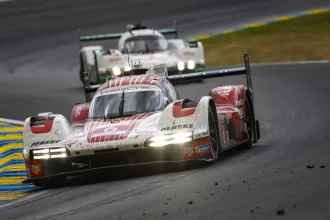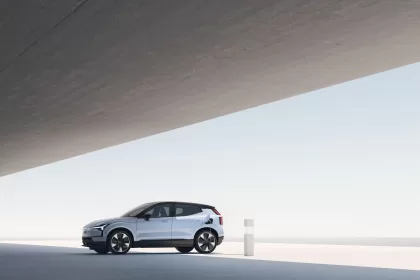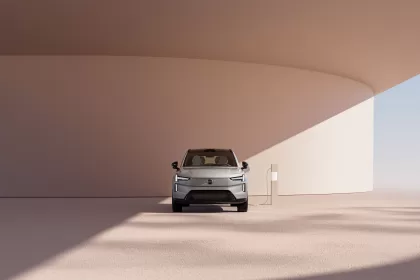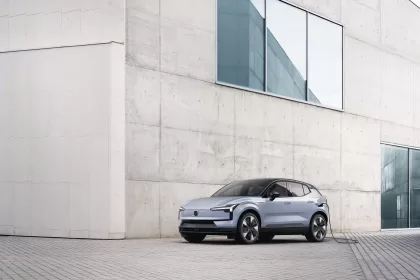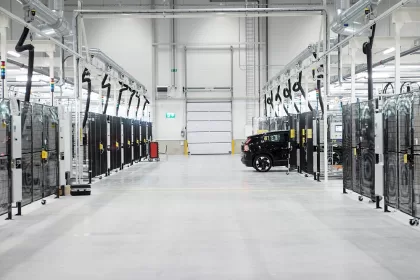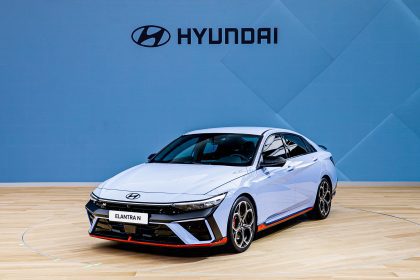- Q3 revenue was SEK 92 bn (SEK 79 bn in Q3 2022)
- Q3 operating income (excluding JVs and associates) was SEK 6.1 bn (SEK 3.5 bn in Q3 2022)
- Q3 operating income was SEK 4.5 bn (SEK 2.1 bn in Q3 2022)
- Q3 EBIT margin (excluding JVs and associates) was 6.7 per cent (4.4 per cent in Q3 2022)
- Q3 EBIT margin was 4.8 per cent (2.6 per cent in Q3 2022)
- Q3 basic earnings per share was SEK 1.01 (SEK 0.11 in Q3 2022)
- Q3 fully electric car sales share at 13 per cent (7 per cent in Q3 2022)
Volvo Cars today reports an almost 75 per cent increase in operating profits, excluding joint ventures and associates, to SEK 6.1 bn for the third quarter of 2023. The EBIT (operating) margin excluding joint ventures and associates came in at 6.7 per cent, compared to a margin of 4.4 per cent in the same period last year. The company saw strong sales and revenue growth during the quarter, which in combination with lower costs for raw materials and logistics, resulted in a solid underlying operating profit.
“Our operating performance is gathering momentum, while we continue to make steady progress on our transformation objectives,” said Jim Rowan, president and chief executive of Volvo Cars. “As such the quarter developed as we planned and communicated, putting us in a good position to close out the year with solid double-digit growth in retail volumes and a considerably higher share of fully electric cars for the full year. At the same time, uncertainties remain on the horizon, and we continue to be watchful.”
The full CEO report, with more detailed highlights of the quarter, is included in the interim report for the period and can be found here.
Retail sales continued to improve during the quarter, with solid double-digit growth in all three months and sales growth of 22 per cent for the period, compared to the third quarter of 2022. That means Volvo Cars has now reported thirteen consecutive months of retail sales growth, illustrating solid demand for its cars, despite pricing pressures in many parts of the world.
The company’s pure electric sales share of 13 per cent for the quarter was almost double what it was in the same period in 2022, increasing by 111 per cent year-on-year. This underlines how Volvo Cars is well on its way to become one of the fastest transformers in the industry. The launch of the competitively priced, fully electric EX30 SUV will serve to strengthen its position and help the company in its ambition to become a fully electric car company by 2030.
Customer response to models such as the EX30 has been strong, and the small SUV generated higher than expected pre-orders. EX30 production started in the third quarter and the first cars are expected to be delivered during Q4, with production and deliveries ramping up in earnest in 2024.
When Volvo Cars revealed the EX30 in June, it indicated it was exploring additional manufacturing locations globally and earlier today, the company announced its plan to expand production of the EX30 and to also build it at the Ghent plant in Belgium from 2025. This decision reflects the strong demand for the EX30, supports Volvo Cars’ strategy of building where it sells, and boosts production capacity for the car in Europe as well as for global export.
Q3 operating and financial performance
The solid operational performance and good momentum was reflected in the company’s key operational indicators. Production volumes in the third quarter were up by 16 per cent versus the same period a year ago, as availability and visibility continued to improve in the supply chain.
Commercially, Volvo Cars’ order book remained stable and the company managed to maintain premium pricing. Its strong brand position, based on safety, quality and Scandinavian design, has proven to be a real asset in maintaining its premium pricing position. As a result, the company booked a revenue for the quarter of SEK 92 billion, up 16 per cent compared to the same period last year.
At the same time, the gross margin continued to improve and came in at 19.6 per cent, helped by improving margins on electric cars, which came in at 9 per cent and was significantly up compared to the last quarter. This underscores that lower lithium prices are starting to have an effect, as well as the company is realising the effects of increased pricing on model year 2024 fully electric cars – as indicated during the previous quarter. Once the EX30 starts to be shipped to customers, it will further boost Volvo Cars’ profitable growth in fully electric cars, which the company believes will position it well versus many of its competitors.
In addition to lower raw material prices, costs for freight and other logistics have also eased. Spot buy costs for key components such as semiconductors were also reduced, while Volvo Cars’ internal cost efficiency and optimisation initiatives are starting to bear fruit.
With regards to its climate action plan, Volvo Cars continued to make progress in its efforts to reduce its CO2 footprint per car. During the first nine months of the year, overall CO2 emissions per car were 19 per cent lower compared with our 2018 benchmark, supporting our mid-decade ambition of a 40 per cent CO2 reduction per car.
Looking ahead
The performance for the third quarter puts Volvo Cars in a position to close out the year in line with earlier communications: solid double-digit growth in retail volumes for the full year and an increased share of fully electric cars versus 2022.
This positions the company well for a fast start in 2024, when it will bring three new fully electric models on the roads. Deliveries of the EX30 to customers are starting soon and on November 12 it will reveal the Volvo EM90, the company’s first ever premium multi-purpose vehicle (MPV). That means that in less than six months, Volvo Cars will have unveiled two brand new cars into two new segments, on top of the EX90 revealed late last year.
The company’s current trajectory shows that the building blocks for its transformation in recent years are starting to deliver at pace. Rather than simply delivering on its transformation passively, Volvo Cars chooses to actively engage with wider changes in the key technology shifts for the future and be one of the fastest industry transformers.
“We remain vigilant in light of the macroeconomic and geopolitical uncertainties and remain laser-focused on execution,” said Jim Rowan. “We will continue to emphasise cost-consciousness throughout our organisation and constantly work to make our business more efficient and more sustainable.”




